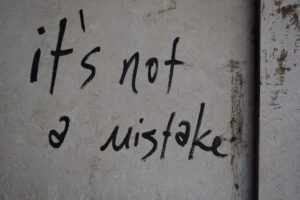It’s one thing to be productive on your own, but getting a whole team in sync? That’s a different challenge entirely.

I’ve been there. Not just in a team setting, but in my own life. I spent years stuck in a cycle of bad habits—laziness, overeating, and wasting countless hours. Building a productive life felt impossible. But I learned that real, lasting change doesn’t come from a single grand gesture. It comes from small, consistent steps. The same principles that helped me build a better life can transform a team from disconnected and sluggish to focused and energized.
You don't need a corporate overhaul. You just need to focus on a few key areas. Here are 20 practical boosters that can make a real difference for your team.
Get the Basics Right
Before you can improve, you need a solid foundation. If your team is confused about the mission or who is responsible for what, productivity will always suffer. It’s like trying to build a house on sand.
- Set Crystal-Clear Goals. Everyone on the team should be able to answer the question: “What are we trying to achieve right now?” If they can’t, your goals aren’t clear enough.
- Define Roles and Responsibilities. Avoid the “I thought you were doing that” trap. Make it obvious who owns each part of a project. This eliminates confusion and empowers people to take charge of their work.
- Use the Right Tools. Don’t make work harder than it needs to be. Find simple, effective software for project management, communication, and file sharing. The best tool is the one your team will actually use.
- Create a Shared Vision. This is bigger than a single goal. It’s the “why” behind your work. When people feel connected to a larger purpose, they are more motivated to do their best.
Talk Smarter, Not More
Poor communication kills productivity. Endless meetings, constant interruptions, and vague emails drain time and energy. The goal isn't to talk all the time; it's to make every interaction count.
- Hold Fewer, Better Meetings. Every meeting should have a clear purpose and a desired outcome. If it can be an email, make it an email. Respect everyone's time.
- Always Have an Agenda. No agenda, no meeting. It’s that simple. An agenda keeps the conversation on track and ensures you cover everything you need to.
- Do a Quick Daily Check-in. This isn’t a long, formal meeting. It’s a 10–15 minute huddle to align on priorities for the day and identify any roadblocks. What did you do yesterday? What will you do today? What's in your way?
- Encourage Open Feedback. Create a safe space where team members can share ideas and concerns without fear of judgment. Good ideas can come from anywhere.
- Embrace Asynchronous Communication. Not every message needs an instant reply. Use tools like Slack or Teams for quick updates, but set the expectation that people will respond when they have a natural break in their work. This protects focus.
Protect Your Focus
In today’s world, our attention is our most valuable resource. A distracted team is an unproductive team. Helping everyone protect their focus is one of the biggest gifts you can give them.
This one was a game-changer for me personally. I used to think I had to grind for 8+ hours a day to be productive. But after I started breaking my unhealthy habits, I learned that the quality of your focus matters more than the quantity of your hours.
- Introduce Deep Work Blocks. I found that 2–4 hours of truly deep, uninterrupted work is more powerful than an entire day of distracted multitasking. Encourage your team to block off time for their most important tasks and protect that time fiercely.
- Encourage Real Breaks. Step away from the screen. Go for a walk, grab a coffee, or just chat with a coworker about something other than work. Our brains need downtime to recharge and solve problems.
- Respect "Do Not Disturb" Status. When someone has their status set to busy or focused, respect it. Trust that they are doing important work and will get back to you later.
- Prioritize Ruthlessly. Not everything is a top priority. Help your team identify the one or two tasks that will make the biggest impact each day and focus on those first.
- End the Day with a Plan. Before logging off, take five minutes to plan the next day. This simple habit creates clarity and allows you to hit the ground running in the morning.
Build a Culture of Support
A team is more than just a group of people working together. It’s a small community. A supportive and positive culture makes people want to show up and do great work.
- Celebrate Small Wins. This was huge for me when I was losing over 110 pounds. Each small victory built momentum. The same is true for a team. Acknowledge progress, celebrate milestones, and recognize effort. It keeps morale high.
- Trust Your Team. Micromanagement destroys motivation. Hire good people, give them the resources they need, and then trust them to do their jobs. Autonomy is a powerful motivator.
- Lead by Example. As a leader, you set the tone. If you want your team to take breaks, you take breaks. If you want them to have a healthy work-life balance, you show them what that looks like.
- Practice Gratitude. A simple "thank you" can make someone’s day. I practice daily gratitude as part of my faith journey, and it has changed my perspective on everything. In a team, openly appreciating someone’s contribution builds connection and goodwill.
- Have Fun Together. Team building doesn’t have to be a cheesy trust fall. Go out for lunch. Play a board game. Do something that allows people to connect as human beings, not just as coworkers.
- Encourage Rest. A tired team is not a productive team. Encourage everyone to disconnect after work hours and get proper rest. Burnout is the ultimate productivity killer.
Building a productive team is a journey, not a destination. You won't fix everything overnight. But by making small, consistent improvements, you can create an environment where everyone can thrive.
So, what’s one small change your team can try this week?





